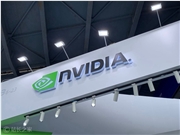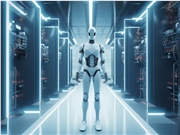In the fiscal year 2025, Microsoft announced an investment of $80 billion to build data centers specifically designed to handle artificial intelligence (AI) workloads. According to a statement from the company on its official blog, this plan will accelerate the training of AI models and the global deployment of cloud applications. Brad Smith, Vice Chairman and President of Microsoft, stated that more than half of the funding will be allocated for construction in the United States, highlighting the country's significant role in this new wave of technology.

Image Source Note: Image generated by AI, image licensed from service provider Midjourney
In his statement, Smith pointed out, "Looking ahead, AI is bound to become a transformative technology. AI has the potential to drive innovation and productivity across various industries." He emphasized that if the U.S. can leverage its advantages and effectively collaborate internationally, it will be able to lead in this technological revolution.
As early as April 2024, Microsoft engaged in preliminary discussions with OpenAI regarding the construction of an AI supercomputer data center named "Stargate." The construction cost of this facility is expected to exceed $100 billion. This also marks the first time Microsoft has referred to OpenAI as a "competitor" in its filings with the Securities and Exchange Commission (SEC), indicating a growing competitive relationship between the two companies.
With the increasing demand for AI technology, the need for electricity is also rising sharply, which could lead to potential power shortages for data centers in the future. Therefore, Microsoft's initiative not only represents an expansion of its own business but also reflects the urgent need for infrastructure in the current technological ecosystem.
Against the backdrop of rapid advancements in AI technology, Microsoft's investment will undoubtedly further propel technological progress and assist more industries in embracing digital transformation. In the future, with these AI data centers, Microsoft will provide more powerful computing capabilities globally, thus accelerating the adoption of AI applications.










